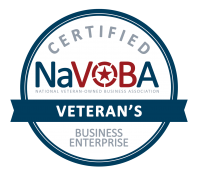Comprehensive AI & Machine Learning
Comprehensive AI & Machine Learning Staffing Solutions

Expertise We Offer
Machine Learning (ML) & Deep Learning (DL)
Skills: Supervised and unsupervised learning, neural networks, decision trees, ensemble methods, reinforcement learning, TensorFlow, Keras, and PyTorch.
Use Cases: Predictive analytics, recommendation systems, fraud detection, autonomous systems, image recognition, and Natural Language Processing (NLP).
Natural Language Processing (NLP)
Skills: Text analysis, sentiment analysis, language models (GPT, BERT), machine translation, speech recognition, and chatbot development.
Use Cases: Chatbots, AI-driven content generation, voice assistants, customer support automation, and text-based analytics.
Data Engineering
Skills: Data pipelines, data wrangling, ETL (Extract, Transform, Load) processes, big data technologies (Apache Spark, Hadoop), and cloud platforms (AWS, Azure, GCP).
Use Cases: Preparing and processing large datasets for AI/ML models, real-time data streaming, and scalable AI solutions.
AI Ethics & Governance
Skills: Bias detection, ethical AI frameworks, explainability, fairness in machine learning, and privacy preservation (e.g., differential privacy).
Use Cases: Ensuring AI systems are transparent, accountable, and fair, particularly in sensitive industries like finance, healthcare, and legal systems.
AI-Driven Automation & Robotic Process Automation (RPA)
Skills: Robotic Process Automation tools (UiPath, Automation Anywhere), process mining, and AI-powered workflow automation.
Use Cases: Streamlining business processes, reducing human error, and increasing efficiency in sectors like finance, insurance, and customer service.
Computer Vision
Skills: Image recognition, object detection, segmentation, and frameworks like OpenCV, TensorFlow, and YOLO (You Only Look Once).
Use Cases: Quality control in manufacturing, surveillance, autonomous vehicles, medical imaging, and facial recognition.
AI Infrastructure & Cloud Computing
Skills: Cloud-based AI tools (AWS SageMaker, Google AI Platform, Microsoft Azure ML), containerization (Docker, Kubernetes), and GPU-based computing.
Use Cases: Scaling AI models, managing cloud infrastructure for AI applications, and facilitating collaboration between data scientists and engineers.
AI Product Management & Strategy
Skills: Understanding business use cases for AI, product lifecycle management, AI project scoping, and creating value-driven AI solutions.
Use Cases: Developing AI-powered products, setting AI priorities, and translating business needs into AI initiatives.
Cybersecurity and AI
Skills: AI-based threat detection, anomaly detection, secure AI model deployment, and adversarial machine learning.
Use Cases: Enhancing cybersecurity using AI for threat detection, intrusion prevention, and vulnerability management.
AI/ML Operations (MLOps)
Skills: Model deployment, monitoring, version control, automation, and collaboration between teams (DevOps + ML).
Use Cases: Efficient deployment and maintenance of AI models, large-scale model performance monitoring, and system updates.
Generative AI
Skills: Working with generative models like GANs (Generative Adversarial Networks), diffusion models, and advanced language models.
Use Cases: Content generation (text, images, videos), AI in art, and generative design in product development.
Customized Workforce Solutions
Full-Stack Developer Training: Our Full-Stack Developer Program equips professionals with the skills to build powerful AI-driven applications.
Agile Development Teams: We assemble agile development teams tailored to customer needs, providing scalable, on-demand workforces.
Flexible Engagement Models: Whether you need permanent hires, contract staff, or project-based teams, we deliver solutions that adapt to your business goals.
By developing a robust talent pool in AI and ML, we empower organizations to leverage cutting-edge technologies for transformational outcomes. Let Cook Systems help you build the future—one AI solution at a time.
Aligning Talent with Market Needs
Staying Agile: The rapid pace of AI advancements demands flexible staffing solutions. We offer reskilling and upskilling opportunities to ensure talent remains aligned with cutting-edge developments.
Industry-Specific Expertise: Different industries require specialized AI skills. Healthcare, for instance, often focuses on medical imaging, while the finance sector emphasizes fraud detection and risk management.
Partnerships with AI Vendors: We collaborate with leading AI platform providers such as Google, Microsoft, and AWS to stay updated on emerging technologies and ensure our candidates are proficient with the latest tools.

Building a Talent Pool: Our Action Plan
To ensure success in these new markets, Cook Systems is adopting the following strategies:
Training & Certification Programs
Collaborating with universities and industry leaders to offer certifications in aerospace and mechanical engineering.Industry Networking
Engaging with aerospace expos, job fairs, and government contractors to align with market needs.Recruiting Strategies
Targeting experienced professionals in adjacent fields like automotive and industrial engineering.Flexible Staffing Models
Providing permanent, contract, and project-based staffing to accommodate dynamic industry needs.Technology Partnerships
Partnering with specialized software vendors to provide engineers with cutting-edge tools.

Empower Your Business Growth
Looking to the Future
Let us help you achieve your goals by connecting you with the finest engineering talent to drive your success. Together, we can shape the future of Aerospace and Specialized Engineering.
6000 Poplar Ave, STE 125
Memphis, TN 38119

